NANDITHA KRISHNA
The Book of Demons

Including a Dictionary of Demons in Sanskrit Literature

PENGUIN BOOKS
PENGUIN BOOKS
Published by the Penguin Group
Penguin Books India Pvt. Ltd, 11 Community Centre, Panchsheel Park, New Delhi 110 017, India
Penguin Group (USA) Inc., 375 Hudson Street, New York, New York 10014, USA
Penguin Group (Canada), 90 Eglinton Avenue East, Suite 700, Toronto, Ontario M4P 2Y3 , Canada (a division of Pearson Penguin Canada Inc.)
Penguin Books Ltd, 80 Strand, London WC2R 0RL , England
Penguin Ireland, 25 St Stephens Green, Dublin 2, Ireland (a division of Penguin Books Ltd)
Penguin Group (Australia), 707 Collins Street, Melbourne, Victoria 3008, Australia (a division of Pearson Australia Group Pty Ltd)
Penguin Group (NZ), 67 Apollo Drive, Rosedale, Auckland 0632, New Zealand (a division of Pearson New Zealand Ltd)
Penguin Books (South Africa) (Pty) Ltd, Block D, Rosebank Office Park, 181 Jan Smuts Avenue, Parktown North, Johannesburg 2193, South Africa
Penguin Books Ltd, Registered Offices: 80 Strand, London WC2R 0RL , England
First published by Penguin Books India 2007
www.penguinbooksindia.com
Copyright Nanditha Krishna 2007
Images and illustrations copyright Nanditha Krishna 2007
The views and opinions expressed in this book are the authors own and the facts are as reported by her and the publishers are in no way liable for the same.
Cover illustrations courtesy of the author
Cover design by Puja Ahuja
All rights reserved
ISBN: 978-01-4310-202-1
This digital edition published in 2013.
e-ISBN: 978-93-5118-144-6
This book is sold subject to the condition that it shall not, by way of trade or otherwise, be lent, resold, hired out, or otherwise circulated without the publishers prior written consent in any form of binding or cover other than that in which it is published and without a similar condition including this condition being imposed on the subsequent purchaser and without limiting the rights under copyright reserved above, no part of this publication may be reproduced, stored in or introduced into a retrieval system, or transmitted in any form or by any means (electronic, mechanical, photocopying, recording or otherwise), without the prior written permission of both the copyright owner and the abovementioned publisher of this book.
Acknowledgements
The Book of Demons was the brainchild of Ravi Singh of Penguin India. He has been extremely encouraging and very patient, in spite of the fact that the book was terribly delayed. The problem is best described by Ravanas ten heads. Each time one was cut a new one or new information would surface, which could not be left out. My special thanks to Ravi, Paromita Mohanchandra and all the others at Penguin India who were involved in the publication of this book.
The C.P. Ramaswami Aiyar Foundation and its staff have always supported me enthusiastically in all my writing endeavours. I must particularly mention the librarians K. Sujatha, S.P. Vijayakumari and V. Kameshraj; G. Balaji and M. Amrithalingam who sourced images to photograph; Prema Srinivasan and Y. Venkatesh who did the sketches; and others like P. Sudhakar, Malathy Narasimhan, P. Sumabala, and S.M. Sujatha who helped me find some rare books. Michel Danino gave me material about the Indus culture and T. Gopalakrishnan the book Scenes from Ramayana, which had fascinating early British drawings. Most importantly, my secretary, H. Manikiandan, performed the very difficult task of keeping track of the text, photos, sketches and the various papers that I accumulated as I was writing this book. My sincere thanks to all of them.
Every book is a burden on the family of the writer and my husband, Dr S. Chinny Krishna, and my sons Prashanth and Rudra, were particularly accommodating and encouraging, in spite of long nights with the lights on all over the house and books and papers strewn everywhere, besides long monologues about demons which they were forced to hear.
The demons of Hinduism are as colourful as the gods, and I enjoyed researching and writing about them. I hope this is merely a beginning and more people will search for the demons that haunt the folk literature of every Indian language.
Note for the Reader
This book has so many Indian words that the entire book would have been full of diacritical marks, making reading difficult. To avoid that, a general rule has been followed regarding spelling:
 Popular spellings have been used for all proper nounsnames of people, places and books. For example, although the sound sh is written differently in Devanagari in the names of Shiva and Vishnu, I have followed the popular spellings. However, I have retained Brahmana (instead of Brahmin or Brahman) as my preferred spelling.
Popular spellings have been used for all proper nounsnames of people, places and books. For example, although the sound sh is written differently in Devanagari in the names of Shiva and Vishnu, I have followed the popular spellings. However, I have retained Brahmana (instead of Brahmin or Brahman) as my preferred spelling.
 Where the sound may change the meaning, either a double vowel or a diacritical mark has been used. For example, Maya was the demon architect, while my (pronounced maayaa) means illusion.
Where the sound may change the meaning, either a double vowel or a diacritical mark has been used. For example, Maya was the demon architect, while my (pronounced maayaa) means illusion.
 The following words appear very frequently, so putting diacritical marks or double vowels throughout the book would make it difficult reading. I have therefore listed the words below:
The following words appear very frequently, so putting diacritical marks or double vowels throughout the book would make it difficult reading. I have therefore listed the words below:
- Rakshasa is pronounced as Raakshasa (to be distinguished from rakshas).
- Yatu and Yatudhana are pronounced Yaatu and Yaatudhaana.
- Danava is pronounced Daanava.
- Pishacha is pronounced Pishaacha.
- Rama and Ravana are pronounced Raama and Raavana respectively.
- To distinguish between the male and female, the double vowel has been used, as in the male Hidamba and his sister Hidambaa. Similarly, Naraka means hell and Naaraka means an inhabitant of hell.
- Dasa, Dasyu, Naga and Nishada are pronounced Daasa, Daasyu, Naaga and Nishaada respectively.
- Pragjyotisha and Patala are pronounced Praagjyotisha and Paataala respectively.
- Rambha and Rambh are distinct entities: a demon and an apsaras respectively.
- Apsaras is the singular form of the word, the plural being apsarases.
PART I
Of vain hopes, of vain actions, of vain knowledge and senseless,
They verily are possessed of the delusive nature of Rakshasas and Asuras.
Bhagavad Gita, 9. 12
{1}
The World of Demons
Without Contraries is no Progression. Attraction and Repulsion, Reason and Energy, Love and Hate, are necessary to Human Existence
William Blake
Demons are found everywhere, in every culture and society. From the Rig Veda to local folk literature, the belief in demons is found all over India. Demons represent everything evil: malice, mischief, iniquity, vice, immorality, malevolence and every form of wickedness. They have inordinate powers. Many were originally human and even heavenly beings. Those who met unnatural or violent deaths, those who were terrifying in their lifetime, and those who had inadequate death rites and so are frustrated become demons. Many were fallen divinities. They may be male or female, native or outsider, Indian or foreign and of any caste, religion or lineage. They have one thing in common: after their deaths, they are figures of malice, figures to be feared and figures to be propitiated. In short, they are demons.

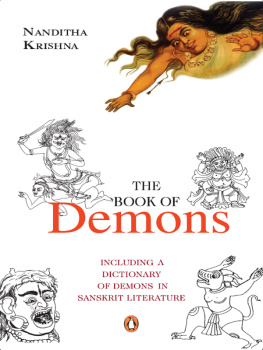
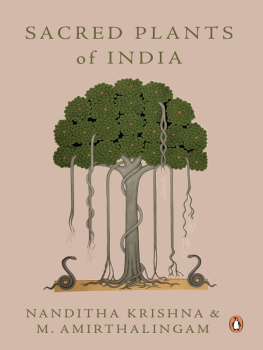
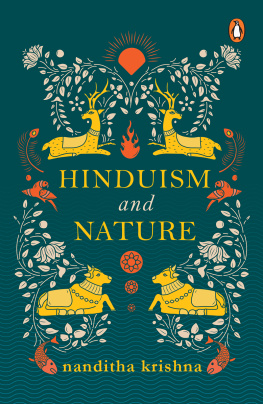




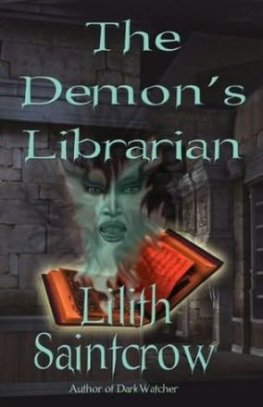
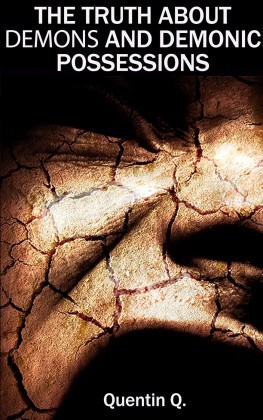

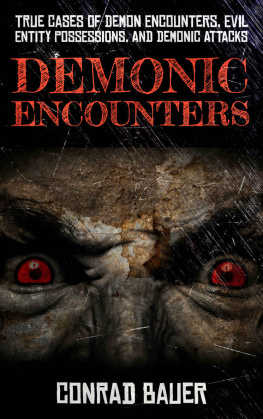
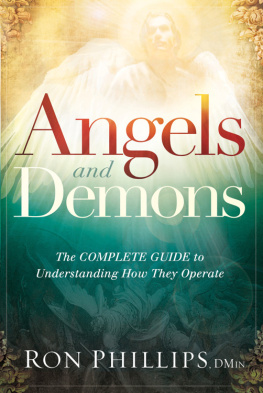
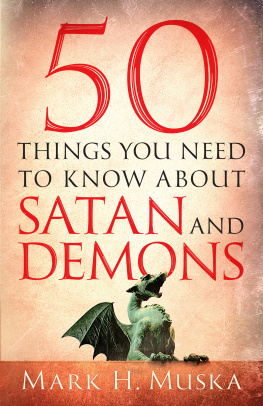

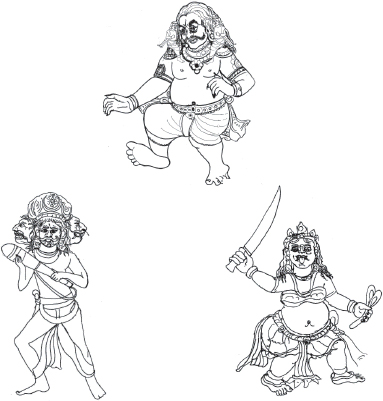


 Popular spellings have been used for all proper nounsnames of people, places and books. For example, although the sound sh is written differently in Devanagari in the names of Shiva and Vishnu, I have followed the popular spellings. However, I have retained Brahmana (instead of Brahmin or Brahman) as my preferred spelling.
Popular spellings have been used for all proper nounsnames of people, places and books. For example, although the sound sh is written differently in Devanagari in the names of Shiva and Vishnu, I have followed the popular spellings. However, I have retained Brahmana (instead of Brahmin or Brahman) as my preferred spelling.